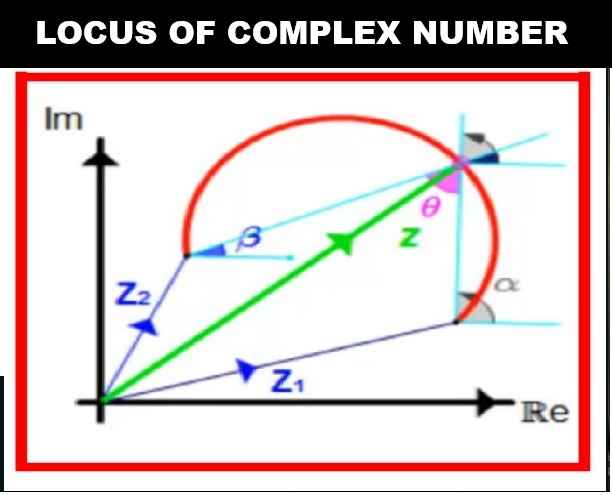Julius Caesar Act-5 Scene-5 Context Questions: ICSE Class 10 English Drama. Context Questions are very common in English Drama because it help in the evaluation of skill among students . Visit official website CISCE for detail information about ICSE Board Class-10 English.

Julius Caesar Act-5 Scene-5 Context Questions: ICSE Class 10 English Drama
| Board | ICSE |
| Subject | English |
| Class | 10 |
| Book Name | Julius Caesar |
| Session | 2024-25 |
| Topics | Act-5, Scene-5 |
| Question Type | Context Questions |
Evergreen Workbook Solutions
(Julius Caesar Act-5, Scene-5 Context Questions)
Que: Read the extract given below and answer the questions that follow
VOLUMNIUS – What says my Lord? … .. .. I know My hour is come.
Que-1: Where are the speakers? Who else are there with them? Where did Brutus ask them to rest?
Ans: The location of speakers are in Philippi, on the battlefield. With them are Dardanius, Clitus, Strato, and Volumnius. Brutus asked them to rest on a rock.
Que-2: Who was feared to be taken? Who does Brutus whisper to?
Ans: Statilius was feared to be murder. Brutus whispers to Clitus and then to Dardanius.
Que-3: What does Brutus whisper to Clitus that makes him react very strongly? What does he say? What does it indicate about Clitus’ feelings towards Brutus?
Ans: Brutus persuade to Clitus for killing him, but Clitus strongly refuses, saying he would rather kill himself. This statement clearly show Clitus’ loyalty and respect towards Brutus, showing he could not bear the thought of harming him.
Que-4: How did the prophecy of the ghost of Caesar come true? How many times and where did the ghost of Caesar appear to Brutus?
Ans: the ghost of Caesar prophecy came true on Brutus’ death, signaling his hour had come. The ghost appeared to Brutus two times: once at Sardis and the last night in the Philippi fields.
Que-5: What does Brutus request Volumnius to do? What special relationship did the two share in the past?
Ans: Brutus persuade Volumnius to hold his sword while he runs onto it, for killing himself. They shared a special relationship of old friends, having gone to school together.
ANTONY- This was the noblest Roman of them all. .. …. … .. … . envy of great Caesar
Que-1: Who does Antony pay his tribute to? Which people are included in the word ‘all’?
Ans: Antony pays his tribute to great Brutus, including all the conspirators in the word ‘all’.
Que-2: What does Antony say about the person at the end of his speech? What were the elements ‘so mixed in him’? Refer to the Elizabethan way of thinking.
Ans: At the end of speech Antony says that Brutus was the noblest Roman of them all, with elements so mixed in him that Nature might stand up and say to all the world, “This was a man!” This refers to the ideal balance of qualities such as bravery, moral integrity, and compassion in Brutus, as per the Elizabethan view of an ideal person.
Que-3: What does Octavius order about this ‘noble Roman’? Did the person deserve the honour? Give reasons for your answer.
Ans: The victorious Octavius orders that Brutus body must be cremated with military honors. while other conspirators who acted out of envy, Brutus acted for what he believed was the common good of Rome, maintaining his honor and principles.
Que-4: What idea of disloyalty and deceit is highlighted in the play?
Ans: The conspirators cheat him despite his trust and friendship. Brutus’ concise and his immediate decision to join the conspiracy also underscore these themes, as he capture with loyalty to Caesar versus his perceived duty to Rome.
Que-5: What sort of burial does the person get? What does this show about Brutus’ status in society? Did you like the ending of the play? Write your answer in a short paragraph.
Ans: Brutus gets buried with full military honors, indicating his high status in Rome and the recognition of his noble intentions by even his adversaries.
The ending of the play is fittingly tragic and thought-provoking, effectively bringing closure to the ups and down events and the moral dilemmas faced by the characters.
Morning Star Workbook Solutions
(Julius Caesar Act-5, Scene-5 Context Questions)
Brutus : Nay, I am sure it is, Volumnius. …. …. … Than tarry till they push us.
Que-1: Who is Volumnius? Why does Brutus show intimacy to him? What favour does Brutus expect from him?
Ans: He is one of Brutus’ loyal friends and followers. Brutus shows intimacy to him because they have a long history together, having been schoolmates. Brutus persuade him to help him commit suicide.
Que-2: The ghost of Caesar appeared to Brutus twice. What did the ghost tell Brutus in Sardis? What does it indicate here in Philippi?
Ans: In Sardis, Ghost of Caesar said “Thou shalt see me at Philippi,” which was a prophecy of Brutus’ death. while in Philippi, it indicates that the prophecy is about to be true.
Que-3: Name two of Brutus’ friends who have already refused to kill him. What does Volumnius say for not agreeing to carry out Brutus’ wish?
Ans: Clitus and Dardanus. Volumnius refuses to carry out Brutus’ wish of killing, saying, “That’s not an office for a friend, my lord,” indicating that assisting in his friend’s suicide is not something he can do as a friend.
Que-4: Give the meaning of “Thou seest the world, Volumnius, how it goes; Our enemies have beat us to the pit.”
Ans: This means that Volumnius can see the state of the world and their situation; their enemies have defeated them and driven them into a hopeless situation, where death seems inevitable.
Que-5: Briefly state the misfortunes enumerated by Brutus to Volumnius.
Ans: the appearance of Caesar’s ghost as a bad omen, signaling his upcoming death. Brutus also refers to their military defeat, where their enemies have cornered them, and the honorable choice for him now is to take his own life rather than be captured or killed by the enemy.
Brutus: Countrymen, My heart doth joy that … .. …. conquest shall attain unto
Que-1: Where and when is Brutus speaking? About whom is he speaking and to whom?
Ans: These word has been speaking on the battlefield at Philippi, just before his death. Brutus is speaking about the loyalty of his friends and followers to those who are still with him: Dardanus, Clitus, Strato, and Volumnius.
Que-2: What recent events have prompted Brutus to say, “I found no man but he was true to me”?
Ans: the loyalty of his followers even in the face of defeat. Despite the overwhelming odds and the loss of the battle, Brutus says these word
Que-3: Would you include Cassius among those who were “true” to Brutus? Give your reasons briefly.
Ans: Yes, Cassius can be included among those who were “true” to Brutus. Although Cassius had his own motivations, he consistently supported Brutus and their cause. Cassius’s actions were always in alignment with their shared goal, and he remained loyal to Brutus until his death.
Que-4: Who finally serves Brutus before Octavius and Mark Antony arrive on the scene?
Ans: Finally serves Brutus by Strato who holding the sword for him as he runs onto it.
Que-5: Do the speeches of Antony and Octavius which end the play prove Brutus’ words to be true as quoted in the last three lines of the above extract?
Ans: Yes, Antony and Octavius speeches prove Brutus’s words to be true.
- Antony tells Brutus as “the noblest Roman of them all,” stating that Brutus acted not out of envy but for the common good.
- Victorious Octavius orders that Brutus be cremated with military honors, showing respect of Brutus believed he would gain by his actions, even in defeat.
Above two recognition by his enemies indicate that Brutus’s belief that he would attain more glory through his honorable defeat than they would through their conquest.
Antony: This was the noblest Roman of them all, …. …. … , “This was a man!”
Que-1: When does Antony speak these words? Who was “the noblest Roman of them all” ? Which people are included in the word, “all”?
Ans: These word speaks Antony after the death of Brutus, following the battle at Philippi.
The phrase “The noblest Roman of them all” refers to Brutus. The word “all” includes the other conspirators who plotted against and assassinated Julius Caesar.
Que-2: Give the meaning of :
(a) He only, in a general honest thought,
Ans: This means that Brutus acted out of a sincere and honest belief, rather than out of envy or personal gain, unlike the other conspirators.
(b) And common good to all, made one of them.
Ans: This means that Brutus joined the conspiracy for the benefit of Rome and its people, rather than for any personal gain.
Que-3: By referring to the Elizabethan way of thinking, state in what way was the “noblest Roman” a perfect human being.
Ans: A perfect human being was someone who possessed a balanced mixture of the four classical elements—earth, water, air, and fire—which symbolized different virtues and qualities.
Brutus is described as having these components so perfectly mixed that Nature herself would acknowledge him as an extra ordinary man.
Que-4: What does Octavius order with regard to the funeral of the noblest Roman? Does he deserve such a burial? Give a reason to justify your answer.
Ans: Victorious Octavius orders that Brutus body to be cremated with military honors. Yes, he eligible for such a burial because, despite his role in the assassination of Caesar, he acted out of a sense of duty and for the greater good of Rome.
Que-5: Briefly state how the play propagates the idea that disloyalty and conspiracy do not succeed.
Ans: The conclusion of the play that disloyalty and conspiracy lead to tragic outcomes, as seen in the fate of the conspirators. Despite their initial success in assassinating Caesar, the conspirators finally meet with defeat and death. The internal conflicts, lack of trust among them, this teach that cheating does not bring success at last.
— : End of Julius Caesar Act-5 Scene-5 Context Questions: ICSE Class 10 English Drama: —
Return to :– ICSE Class -10 Drama: Julius Caesar Workbook Solutions :–
thanks
Please share with your friends if helpful



Hi, your site is very helpful for our English literature exam preparation, especially with Julius Caesar.
Also could you please share the Treasure Chest class 10(mcqs and context questions) question bank i. e short stories and also for our further more better preparation. Thank you.